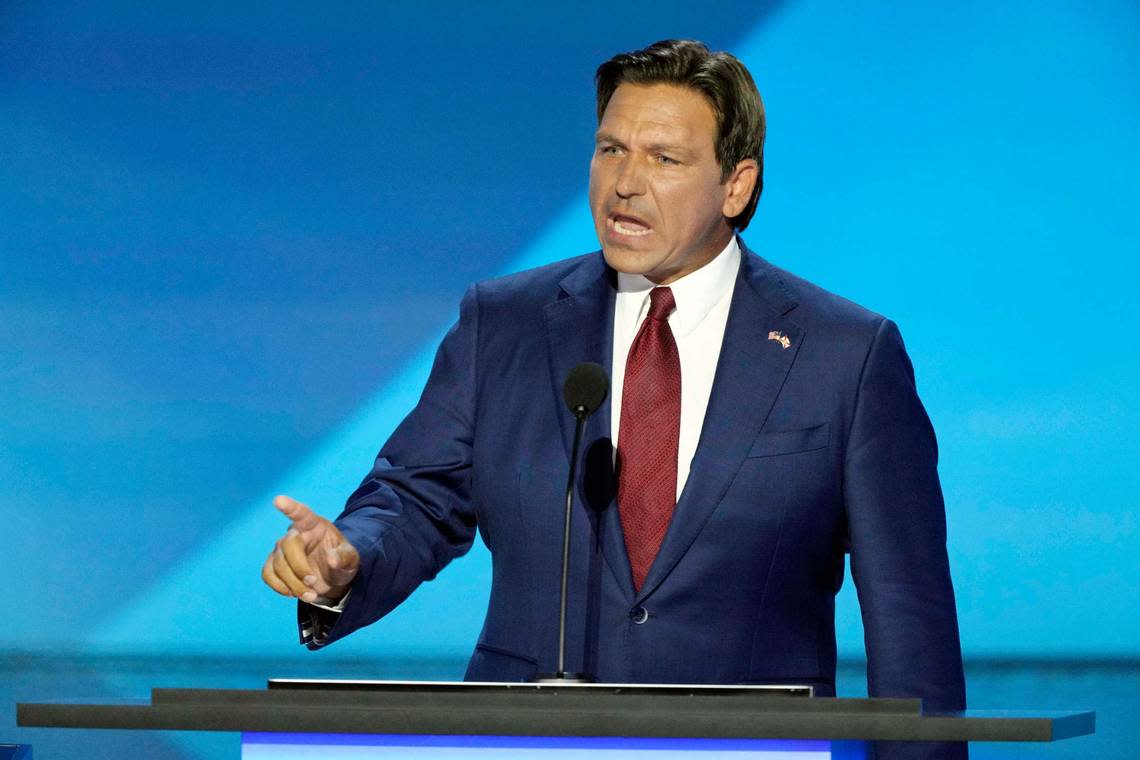DeSantis stepped up executions on the campaign trail. They stopped after he lost

- Oops!Something went wrong.Please try again later.
- Oops!Something went wrong.Please try again later.
- Oops!Something went wrong.Please try again later.
Reality Check is a Herald series holding those in power to account and shining a light on their decisions. Have a suggestion for a future story? Email our journalists at tips@miamiherald.com.
Last year, Gov. Ron DeSantis signed execution warrants for six Florida inmates, the most in any year in the state since 2014. He was also running for president.
DeSantis had signed off on just two executions — both in 2019 — to that point. The sudden step up, along with legislation he signed lowering Florida’s death penalty jury requirement, seemed to signal a new approach to capital punishment.
When DeSantis signed the first of those six death warrants in January 2023, Bryan Griffin, a spokesperson for the governor, said that COVID and state emergencies, like hurricanes, can delay some executions, but that “the process has resumed.”
DeSantis’ office did not return emails requesting comment on why he hasn’t signed any death warrants this year.
But this year, DeSantis hasn’t moved forward on any executions, leading some to question whether the governor’s six executions last year were motivated by his campaign for president and a desire to be seen as tough on crime. DeSantis suspended his campaign in January.
DeSantis’ primary opponent for the Republican nomination, former President Donald Trump, oversaw a record spate of federal executions: 13 inmates were killed from July to January in the final months of his presidency.
“I think most observers believe that Governor DeSantis was trying to outflank Donald Trump to show how tough he was on crime,” said Robert Dunham, an expert on the death penalty and former director of the Death Penalty Information Center. “And his miscalculation, of course, is people weren’t voting for or against Donald Trump based on views on the death penalty.”
Capital punishment used to play a substantial role in campaigns for Democrats and Republicans alike. But that has become less true over the last 20 plus years as the American public has reconsidered, and become less favorable of, the death penalty.
Austin Sarat, a professor at Amherst College, said politicians do still use the death penalty for political purposes, particularly if there’s a sensational crime they can build on that’s in the news during a campaign.
But by the time of the actual execution, which often happens decades after a death sentence, the public focus has been lost.
Sarat said he thinks the issue is more complicated than politicians just wanting to have executions because they’re on a campaign. DeSantis, even with the increased number of executions he oversaw last year, has signed far fewer death warrants than previous Gov. Rick Scott.
“My suspicion is he talked more about woke in schools than he did about executions in Florida,” Sarat said.
Frank Baumgartner, a political science professor at the University of North Carolina at Chapel Hill, said elected officials expect a benefit from acting tough on crime.
But he said voters don’t feel differently about executions compared to other tough-on-crime measures like increasing police funding or creating harsher laws.
“It all adds up in the tough-on-crime bucket,” he said. “People don’t make those fine distinctions.”
Whether DeSantis will resume executions during his final years as governor is unclear. Florida has nearly 280 people on death row, some of whom have been incarcerated since the 1970s.
But his impact on people sentenced to death row could last for years to come — and not just in Florida. The DeSantis-led changes to Florida’s death penalty concerned some death penalty opponents, including activists, attorneys and religious groups, who point out that Florida has the highest number of death row exonerations.
Along with signing a bill requiring only eight people on a jury to sentence someone to death, giving Florida the lowest threshold in the nation, DeSantis also passed a bill that seeks to challenge U.S. Supreme Court precedent and execute child rapists.
The first Florida prosecutors to attempt to charge a man with the death penalty for sexually abusing a child ended up dropping their pursuit after a request from the victim’s family.
But before then, DeSantis was an enthusiastic supporter of their attempt to levy capital punishment. On social media, DeSantis said it would be the “first case to challenge SCOTUS” since he signed the legislation and that the prosecutors have “my full support.”

